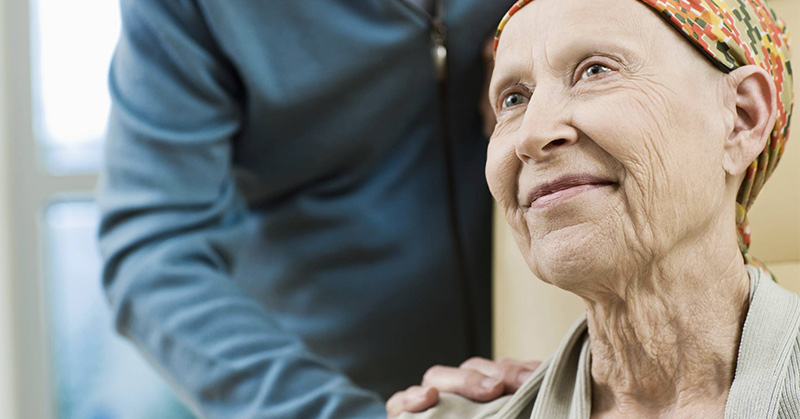How to prevent breast cancer through small changes in your routine
When it comes to breast cancer, prevention is key. In 2012, nearly 1.7 million new cases of breast cancer were diagnosed worldwide, making up one-quarter of new cancer cases in women. The BRCA1 and BRCA2 mutations account for 20-25% of all inherited breast cancers, but the good news is that the remaining diagnoses are not inherited and can be minimized or prevented by making these 10 changes to your daily routine. Let’s break down how to prevent breast cancer. Here are some small changes that can make a big difference in reducing your risk.
1. Get Physical
Physical activity is an essential part of breast cancer prevention. In a 2014 American Cancer Society study, active women had a 25% reduction in risk compared to less active women. Just seven hours of walking a week resulted in a 14% reduction in risk of postmenopausal breast cancer. Get moving, even if it’s just taking the stairs or playing outside with your kids.
2. Nutrition
Eating a healthy diet is key to minimizing breast cancer risk. Fruits and vegetables high in antioxidants, antiestrogen, and chemopreventive properties can help protect against breast cancer. Decrease fat intake and opt for omega-3 fatty acids found in fish, legumes, and lentils. By making simple swaps in your diet, you can reduce your risk of breast cancer.
3. Practice Yoga and/or Meditation
Balancing your mind and body through yoga and meditation can help reduce stress and inflammation, both of which are connected to cancer risk. Start your day with simple stretches and deep breathing exercises to promote overall wellness.
4. Practice Breathing Exercises
Stress can have a significant impact on your health, so implementing breathing exercises can help you manage stress and reduce your risk of cancer. Take a moment to pause, breathe, and center yourself when you feel overwhelmed.
5. Have a Spirit of Forgiveness and Gratitude
Fostering an attitude of forgiveness and gratitude can go a long way in reducing stress and promoting overall well-being. By letting go of stressors and cultivating a positive mindset, you can positively impact your cancer risk.
6. Eliminate Toxins
Minimizing exposure to endocrine-disrupting chemicals and carcinogens can help reduce your risk of breast cancer. Be mindful of products containing harmful chemicals and opt for natural, toxin-free alternatives.
7. Stop Smoking
Smoking has been linked to a higher risk of invasive breast cancer, so quitting smoking is essential for reducing your cancer risk. By breaking this unhealthy habit, you can take a significant step toward preventing breast cancer.
8. Minimize or Avoid Alcohol
Consuming alcohol has been associated with an increased risk of breast cancer, so moderating your alcohol intake can help lower your cancer risk. Choosing non-alcoholic alternatives can still allow you to enjoy social occasions without compromising your health.
9. Get Enough Sleep
Prioritizing quality sleep is important for overall health and well-being, and it can also help reduce your risk of breast cancer. By establishing a consistent sleep routine and creating a restful environment, you can support your body’s natural defenses against cancer.
10. Self-Breast Exams
Regular self-breast exams can help you detect any irregularities early, potentially leading to early intervention and improved outcomes. By staying vigilant and proactive about your breast health, you can take an active role in preventing breast cancer.
Sources
- [1] GLOBOCAN 2012 Estimated Cancer Incidence, Mortality, and Prevalence Worldwide in 2012, International Agency for Research on Cancer/World Health Organization 2012.
- [2] BRCA Fact Sheet, National Cancer Institute: https://www.cancer.gov/about-cancer/causes-prevention/genetics/brca-fact-sheet
- [3] Hildebrand JS, Gapstur SM, Campbell PT, Gaudet MM, Patel AV. “Recreational physical activity and leisure-time sitting in relation to postmenopausal breast cancer risk,” Cancer Epidemiol Biomarkers Prev. 2013
- [4]https://www.hopkinsmedicine.org/breast_center/treatments_services/nutrition.html
- [5] Active Smoking and Breast Cancer Risk: Original Cohort Data and Meta-analysis. Published early online February 28, 2013 in the Journal of the National Cancer Institute. First author: Mia Gaudet, PhD, American Cancer Society, Atlanta, Ga.
- [6] Key TJ, Appleby PN, Reeves GK, “Body mass index, serum sex hormones, and breast cancer risk in postmenopausal women,” J Natl Cancer Inst. 2003
- [7] “Researchers are studying the link between sleep and cancer,” Cancer Treatment Centers of America:






